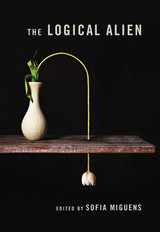
“A remarkable book capable of reshaping what one takes philosophy to be.”
—Cora Diamond, Kenan Professor of Philosophy Emerita, University of Virginia
Could there be a logical alien—a being whose ways of talking, inferring, and contradicting exhibit an entirely different logical shape than ours, yet who nonetheless is thinking? Could someone, contrary to the most basic rules of logic, think that two contradictory statements are both true at the same time? Such questions may seem outlandish, but they serve to highlight a fundamental philosophical question: is our logical form of thought merely one among many, or must it be the form of thought as such?
From Descartes and Kant to Frege and Wittgenstein, philosophers have wrestled with variants of this question, and with a range of competing answers. A seminal 1991 paper, James Conant’s “The Search for Logically Alien Thought,” placed that question at the forefront of contemporary philosophical inquiry. The Logical Alien, edited by Sofia Miguens, gathers Conant’s original article with reflections on it by eight distinguished philosophers—Jocelyn Benoist, Matthew Boyle, Martin Gustafsson, Arata Hamawaki, Adrian Moore, Barry Stroud, Peter Sullivan, and Charles Travis. Conant follows with a wide-ranging response that places the philosophical discussion in historical context, critiques his original paper, addresses the exegetical and systematic issues raised by others, and presents an alternative account.
The Logical Alien challenges contemporary conceptions of how logical and philosophical form must each relate to their content. This monumental volume offers the possibility of a new direction in philosophy.
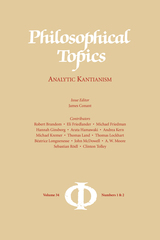
Issue Editor: James Conant
Contributors: Robert Brandom, Eli Friedlander, Michael Friedman, Hannah Ginsborg, Arata Hamawaki, Andrea Kern, Michael Kremer, Thomas Land, Thomas Lockhart, Béatrice Longuenesse, John McDowell, A.W. Moore, Sebastian Rödl, and Clinton Tolley.
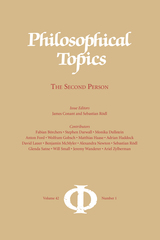
Contents:
Introduction – James Conant and Sebastian Rödl
THE FUNDAMENTAL CHARACTER OF THE SECOND PERSON AS A FORM OF CONSCIOUSNESS
Action and Passion – Anton Ford
What Binds Us Together: Normativity and the Second Person – Glenda Satne
Alethic Holdings – Jeremy Wanderer
THE SECOND PERSON AS A FORM OF PRACTICAL CONSCIOUSNESS
The Transmission of Skill – Will Small
For Oneself and Toward Another: The Puzzle about Recognition – Matthias Haase
THE SECOND PERSON AS THE FORM OF PRIVATE LAW
The Very Thought of (Wronging) You – Ariel Zylberman
The Idea of an Ethical Community: Kant and Hegel on the Necessity of Human Evil and the Love to Overcome It – Wolfram Gobsch
The Social and the Sociable – Stephen Darwall
THE PLACE OF THE SECOND PERSON IN THEORETICAL KNOWLEDGE
Theoretical Anarchism – Benjamin McMyler
Darwall on Action and the Idea of a Second-Personal Reason – Fabian Börchers
Kant on Testimony and the Communicability of Empirical Knowledge – Alexandra Newton
Testimony and Generality – Sebastian Rödl
ADDRESS AND ACKNOWLEDGMENT
Understanding Others in Social Interactions – Monika Dullstein
What Is It to Know Someone? – David Lauer
On Address – Adrian Haddock
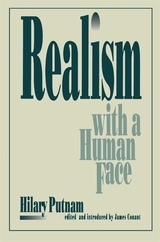
The time has come to reform philosophy, says Hilary Putnam, one of America’s great philosophers. He calls upon philosophers to attend to the gap between the present condition of their subject and the human aspirations that philosophy should and once did claim to represent. Putnam’s goal is to embed philosophy in social life.
The first part of this book is dedicated to metaphysical questions. Putnam rejects the contemporary metaphysics that insists on describing both the mind and the world from a God’s-eye view. In its place he argues for pluralism, for a philosophy that is not a closed systematic method but a human practice connected to real life. Philosophy has a task, to be sure, but it is not to provide an inventory of the basic furniture of the universe or to separate reality in itself from our own projections. Putnam makes it clear that science is not in the business of describing a ready-made world, and philosophy should not be in that business either.
The author moves on to show that the larger human context in which science matters is a world of values animated by ethics and aesthetic judgments. No adequate philosophy should try to explain away ethical facts. The dimension of history is added in the third part of the book. Here Putnam takes up a set of American philosophers, some firmly within and others outside the canon of analytic philosophy, such as William James and C. S. Peirce, and he explores the pragmatist contribution to philosophy from James to Quine and Goodman.
This book connects issues in metaphysics with cultural and literary issues and argues that the collapse of philosophical realism does not entail a fall into the abyss of relativism and postmodern skepticism. It is aimed primarily at philosophers but should appeal to a wide range of humanists and social scientists.
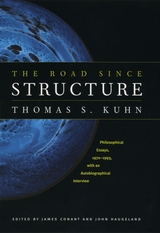
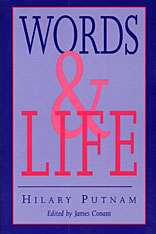
Hilary Putnam has been convinced for some time that the present situation in philosophy calls for revitalization and renewal; in this latest book he shows us what shape he would like that renewal to take. Words and Life offers a sweeping account of the sources of several of the central problems of philosophy, past and present, and of why some of those problems are not going to go away. As the titles of the first four parts in the volume—“The Return of Aristotle,” “The Legacy of Logical Positivism,” “The Inheritance of Pragmatism,” and “Essays after Wittgenstein”—suggest, many of the essays are concerned with tracing the recent, and the not so recent, history of these problems.
The goal is to bring out what is coercive and arbitrary about some of our present ways of posing the problems and what is of continuing interest in certain past approaches to them. Various supposedly timeless philosophical problems appear, on closer inspection, to change with altered historical circumstances, while there turns out to be much of permanent value in Aristotle’s, Peirce’s, Dewey’s, and Reichenbach’s work on some of the problems that continue to exercise us.
A unifying theme of the volume as a whole is that reductionism, scientism, and old-style disenchanted naturalism tend to be obstacles to philosophical progress. The titles of the final three parts of the volume—“Truth and Reference,” “Mind and Language,” and “The Diversity of the Sciences”—indicate that the sweep of the problems considered here comprehends all the fundamental areas of contemporary analytic philosophy. Rich in detail, the book is also grand in scope, allowing us to trace the ongoing intellectual evolution of one of the most significant philosophers of the century.
READERS
Browse our collection.
PUBLISHERS
See BiblioVault's publisher services.
STUDENT SERVICES
Files for college accessibility offices.
UChicago Accessibility Resources
home | accessibility | search | about | contact us
BiblioVault ® 2001 - 2024
The University of Chicago Press









